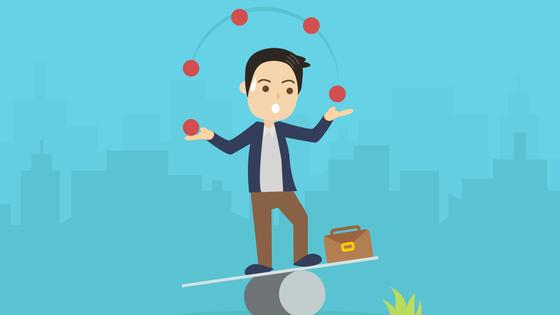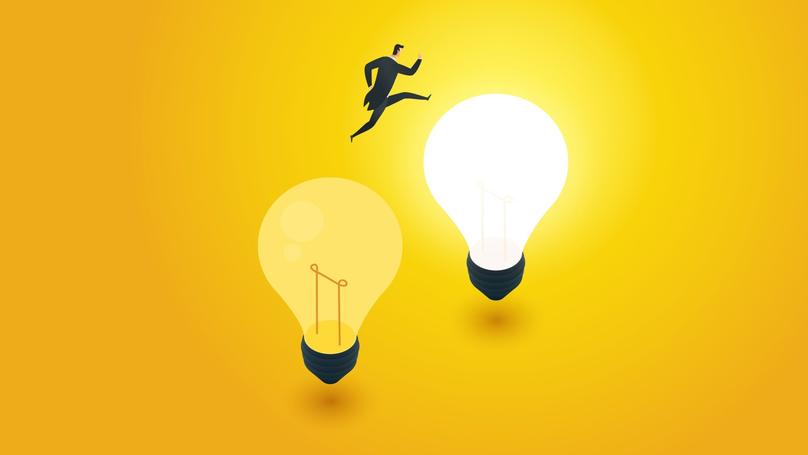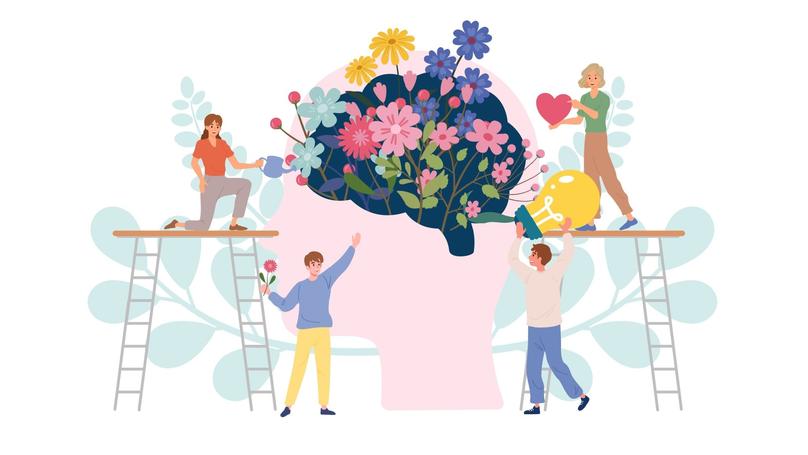How to Quickly Adapt to the Modern World and Situation
Today's world is different from yesterday's. It's like a chessboard: one step and the bishop has eaten the knight, and the players must play the game in new conditions.

New systems and projects appear every hour, and complex decisions radically change entire industries. So, what is left for us, ordinary people, to do? Well, adapt, of course!
But how do you do it? Are there techniques that will help us adapt faster? This article will discuss it, give examples, and prove that adaptation is not a scary beast. Everyone can cope with it.
Adaptation is the process of adjusting to environmental conditions. Our organism is organised so that we strive to find a fulcrum in any situation. Maintaining stability is always a priority. Why? Because it is the key to effective functioning and, therefore, the preservation of life.
So, adaptation is of three types - physiological, psychological, and social. The first affects the internal, that is, biological systems of the body. Nature has taken care of everything and laid in us the basic mechanisms of adaptation at the genetic level. Thus, the constriction of the pupil in the light is also part of it, a reflex that helps us to see well when there is a lack of light. At the same time, psychological adaptation is how our psyche adjusts and changes. Do we not panic when we find ourselves in an unfamiliar place? Do we react quickly? How do we experience the accompanying negative emotions? Social adaptation, on the other hand, shows how a person learns in a new environment and tries on different social roles.
These three types of adaptation are all interrelated - and equally important when we talk about adapting to the modern world. So how can we make it easier when it comes to, for example, changing jobs or moving? What do you need to do, and where do you start? Now we will tell you!
Why Adaptation is Necessary and How it Works

Adaption is imperative in a broad sense; adaptation helps humanity to survive and, in a narrow sense - to achieve their goals in a new environment. Moreover, it is not only the world that is changeable. Every day in everyone's life, there are so many events that, without the ability to adapt, we cannot do.
Adaptation occurs in different spheres and at any age period, for example:
- a child starts nursery or school.
- a student takes their first job after graduation.
- an experienced worker has been offered a new position.
- a young couple got married.
- a person has moved to a new flat, city, or even country.
All these moments require us the ability to adapt, and the more global the changes, the more anxiety they cause. What's more, if you do not buy it in time, this anxiety takes a chronic form, converting it into anxiety disorder or worse. Moreover, I agree that living in a state of daily stress will not make anyone happy or successful.
Before learning specific adaptation techniques, it is essential to understand the mechanism of how it works. There are several stages.
- 1Finding a Reference Point
What is the first thing a person does when entering an unfamiliar environment? Of course, they start to study it! They examine whether their expectations correspond to reality and assess their possibilities, risks, and external dangers. During this period, their behaviour was characterised by lethargy, caution, and low efficiency (so far).
- Direct Adaptation
The person has looked at the demands of the new reality and is now developing a new behavioural strategy. They must conform to these conditions, follow the rules, and change to adapt. In this way, the effectiveness of his behaviour gradually increases.
- Stabilisation
The person has accepted the new rules of the game. Then, a state of equilibrium occurs. For example, a new employee has successfully joined the team, found his place among these people, and even made a couple or three permanent friends. Additionally, they successfully cope with the work duties assigned to them, and that's it, and adaptation is over.
These three stages may have different lengths of time but, in total, take from two weeks to three months on average.
Adaptation Techniques in Practice

The adaptation process often depends on the conditions and their complexity. Let's look at a few of the most popular situations: new job, redundancy, and relocation.
Adapting to a New Workplace
A new job is always a responsibility and stressful. Will you be able to fit into the existing team? Will you be able to show your professionalism? Will you be able to build a new and successful career in this company? All these anxieties pressurise you and give you no peace of mind. So, what do you do? Well, let's consider several strategies of adaptation behaviour that will specifically help in each of the following examples.
- Carefully and in advance, study your job responsibilities. If you know what is required of you, the fear of forgetting something or doing wrong will decrease.
- Adhere to the working hours of the organisation. Don't be late, go to lunch on time, leave on time, and maintain a corporate communication style, events, etc. Following internal routines will show you are a disciplined and engaged employee on the one hand; on the other hand, it will help you get used to it faster.
- Prioritise and Plan - Planning your day will help you avoid being overwhelmed by tasks and deadlines and avoid unnecessary stress.
- Ask for Help from Colleagues. It is better to ask if something is unclear. I agree that independence is a cause for pride, but not when you must redo all the work. If there is a problem, don't be afraid to talk about it. Go to your manager and explain what's wrong. You will not be reprimanded for this as a newbie, and they won't doubt your competence.
- Do Not Take on The Responsibilities of Others. Doing work for your colleagues is not the best way to show them favour. Someone may perceive it as an attempt to "suck up," and someone, on the contrary, will start to take advantage and constantly shift things to you.
Adaption Upon Dismissal.
Losing a job is also a part of life. It, alas, can happen to anyone. The stress factor here is financial losses and violating the usual way of life. A person is deprived of support and eventually disorientated. So, what do you do next?
- Do not rush to look for a new job immediately. Take a time-out and recharge your batteries. How are you feeling? If you are in a state of stress, grab the first vacancy you see, and then your anxiety will only get worse. After all, you'll be excited about getting a new job (if anything, see the previous section). One thing overlaps the other like a layer cake. Not giving yourself time to rest will not only aggravate your psycho-emotional state but also possibly undermine your physical health. Instead, it's worth distracting yourself and giving yourself time to recover. Keep yourself busy around the house, watch films, and read fiction. Take a whole holiday before moving forward.
- Organise your day. A straightforward routine helps you get used to a new rhythm. Incorporate things into your schedule that you've been constantly putting off. Make time for sports and sleep. These two components will help keep your body toned. This is the key to feeling good.
- Socialise. Meetings with friends, relatives, and new acquaintances will also help to return to a stable condition. Changes have already happened, but some support you.
- Start thinking about the next steps. You are a specialist in your field, have faith in yourself, and don't forget this! Yes, the redundancy has happened, but the skills have stayed with you. That means new opportunities await you. You can start by monitoring job sites and analysing what competencies are in demand in the labour market now and how to level them up if something is missing. Going to interviews is also a kind of work, so prepare for it and don't forget to praise yourself!
Adapting to a New Place of Residence
It's no secret that moving also takes away internal resources. Furthermore, adaptation to a change of environment can be the longest of all because we often must adapt not only to the new rhythm of life but also to the mentality, cuisine, culture of communication, climate, etc. For example, coming from the suburbs to somewhere like New York City, many people will be shocked by the lightning pace of life. It is not uncommon to hear people complain that residents of megacities are always running, lost in the rat race, and running like a hamster in a wheel. But, a person adapts and goes back - it's normal. Remember that every city, house and even flat has its own rules.
- Assess the Environment. What conditions will you live in, what rules or norms are accepted here? Please get to know them beforehand, or better yet, the people who represent them can personally bring you up to speed.
- Contact your Neighbours. Often, these people have lived here for a long time, which means they too can be a source of helpful information, or better yet, your potential friends! Neighbours are the easiest to get to know, so start with them.
- Explore the Area. Think of yourself as the hero of an interactive quest. What's nearby? Which shops and pharmacies are within walking distance and which ones do you have to drive to? And what to drive? Where can you dine, walk, have fun? Research transport and different routes. The better you know the area, the more confident you feel. This information will also come in handy when you need to buy something at home.
- Talk About New Experiences with people close to you, even from a distance. When we share our experiences, we feel that we are not alone. We get over negative emotions faster and can hear helpful advice. Emotional support can help you stay stable.
- Create a Daily Routine. It will keep you from getting lost in time, and understanding what, when and how much you do creates a sense of stability and resilience.
Universal Adaptation Strategies for All Occasions

You can also identify general adaptation strategies that apply to very different cases.
- Regular and varied diet, moderate physical activity, and adequate sleep (at least eight hours!). Nobody cancels physiology. How the body feels directly affects our emotional state and the speed and quality of adaptation.
- Daily Routine. If there is chaos in one area of your life, you should not allow it to penetrate other areas. In times of change, it is imperative to create a "corner of peace" for yourself, i.e., those aspects, places, and times when everything is stable, familiar, and familiar to you, where you can take a break from the volatility of the world and recover. A clear schedule helps to tame this volatility - don't neglect it, and start keeping a diary!
- Communication. People are a tremendous energy source, so share your emotions and impressions, get to know each other, and discuss what is bothering you. Support helps you overcome inner conflicts and anxiety. Adapting is easier when you do it with someone together or at least with someone's assistance.
- Goal Setting. Adopt a comfortable position and relax. Now, visualise your ideal future. What do you want to see your life in a new place? What do you need to do to make it so? Where can you start? Do something simple and uncomplicated, and then move on to more. You're probably already on the right track!
- Flexible Thinking. Think of change as broadening your horizons and trying to see the world from different perspectives. Your friends and family will also be invaluable, so ask them how they would behave in similar situations. Or remember your favourite film characters, cartoon characters, your idols. What would they do? Can you do the same?
The key is to take your time. Give yourself time to adjust to the change. It's important to realise that getting used to it and adjusting is a long process. Often, you may hear the advice to be less nervous, but how can you do this if emotions cause you to lose the plot? You can use breathing techniques. Here are some of them. Get into a comfortable position before you start exercising. Breathe through your nose.
Exercise 1. Smooth Breathing
- Calmly inhale and exhale at the same pace.
- You can mentally count - inhale "one, two, three," and exhale for "one, two, three."
Exercise 2. Square
- Slowly inhale for four counts: 1-2-3-4.
- Hold your breath mentally and count to four.
- Exhale for four counts: 1-2-3-4.
- Hold your breath, and mentally count to four.
Exercise 3. Long Exhalation
- Inhale for three counts: 1-2-3.
- Exhale, counting to six: 1-2-3-4-5-6.
Adaptation will be quicker and more painless if you can reduce your anxiety and worry. Stress prevents you from thinking objectively and assessing the situation sensibly. These simple exercises will help you relax and get your brain in the right frame of mind. But there are other methods, too!
Lectera’s Online Courses by topic
Adaptation with Soft Skills
Adaptation is a Complex Process. It involves the whole person. Physiological processes, psyche - everything is involved, including an entire arsenal of skills-assistants that can make your life in new and unfamiliar conditions much more effortless. These are soft skills. They include the following.
- Information Gathering and Processing. It is the ability to find the correct data to systematise it. Remember the famous phrase, "He who has information has the world?" It is also crucial in adaptation because the more information you know about the situation, the more confident you feel.
- Communication. It implies the ability to find contact with people. Moreover, it's not just about sharing information. It includes negotiating, expressing your position, and giving arguments.
- Stress Tolerance. This skill shows how you react in conflict situations. Adaptation is often associated with unpleasant experiences and excitement. Therefore, stress resistance will allow you to adapt more easily and quickly.
- Emotional Intelligence (EI) refers to the ability to accommodate the interlocutor, to control their own emotions, and to monitor other people's emotions. All this will help to establish contact with others to perform the assigned tasks better. It is easy to cope with difficulties if emotions do not take over.
- You are setting and Evaluating Tasks. This skill will let you know what you want to achieve and help distribute resources competently. After all, adapting is easier when there is a concrete benchmark ahead.
The easiest way to develop these soft skills is with Lectera. Specialised courses will help you develop soft skills and strengthen your strengths.
How do I understand if I'm adapting successfully?
Well, after a while, reassess the situation. Have things changed? Observe:
- your emotional state is stable.
- you can fulfil your duties successfully.
- you have developed a rapport with others.
- you are no longer fearful or anxious about your surroundings.
- you are confident about your future.
If at least one of these things is true for you, you should know that your adaptation is going well and to cope even with dramatic changes in everyone's strength. Effort and patience will reap the rewards. So, try different methods, change strategies, and give yourself time; everything will work out. You can choose several adaptation techniques for yourself. It is more effective to use them in an integrated way. Don't forget that developing new habits and interaction methods with others is also a way to discover something new about yourself.
Share this with your friends via:
Latest News

In the UK, £23 million has been allocated for the expansion of the EdTech Testbed program — pilots of educational technologies in schools and colleges.

In the US, Tuskegee University announced the launch of Tuskegee University Global Campus (TUGC) — a new online platform for distance learning.

A significant stage in the development of the alternative education system has begun in West Northamptonshire in the UK: the County Council is actively calling on parents, guardians, and trustees to participate in shaping the future of this key area.

Outwoods Primary School in Atherstone, Warwickshire, having experienced deep sadness after the loss of their famous cat, Silla, has found solace in a new pet – a Maine Coon named Aloysius O’Hara.

In modern universities, artificial intelligence, and in particular ChatGPT, is rapidly transforming from a controversial tool into a full-fledged student assistant.












 £23 million allocated for the expansion of EdTech Testbed in the UK
£23 million allocated for the expansion of EdTech Testbed in the UK
 Tuskegee University launches Global Campus — a new online platform
Tuskegee University launches Global Campus — a new online platform
 Test: How Psychologically Mature Are You? Check Your Inner Foundation.
Test: How Psychologically Mature Are You? Check Your Inner Foundation.
 Test. Check Your Social Media Dependency Level!
Test. Check Your Social Media Dependency Level!
 Test: What Business is Right For You?
Test: What Business is Right For You?
 Test: How Prone Are You to Abusive Behavior as a Manager?
Test: How Prone Are You to Abusive Behavior as a Manager?
